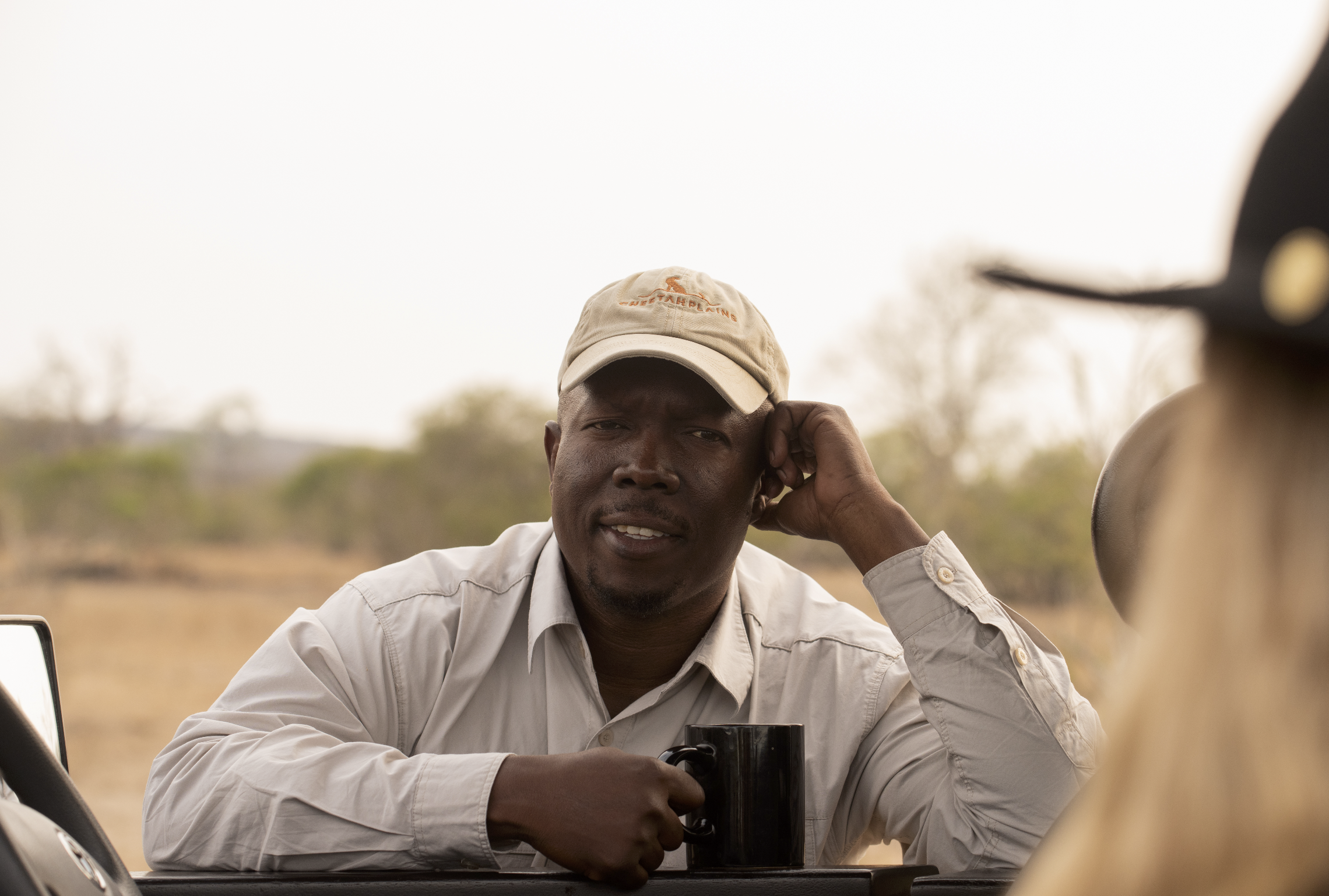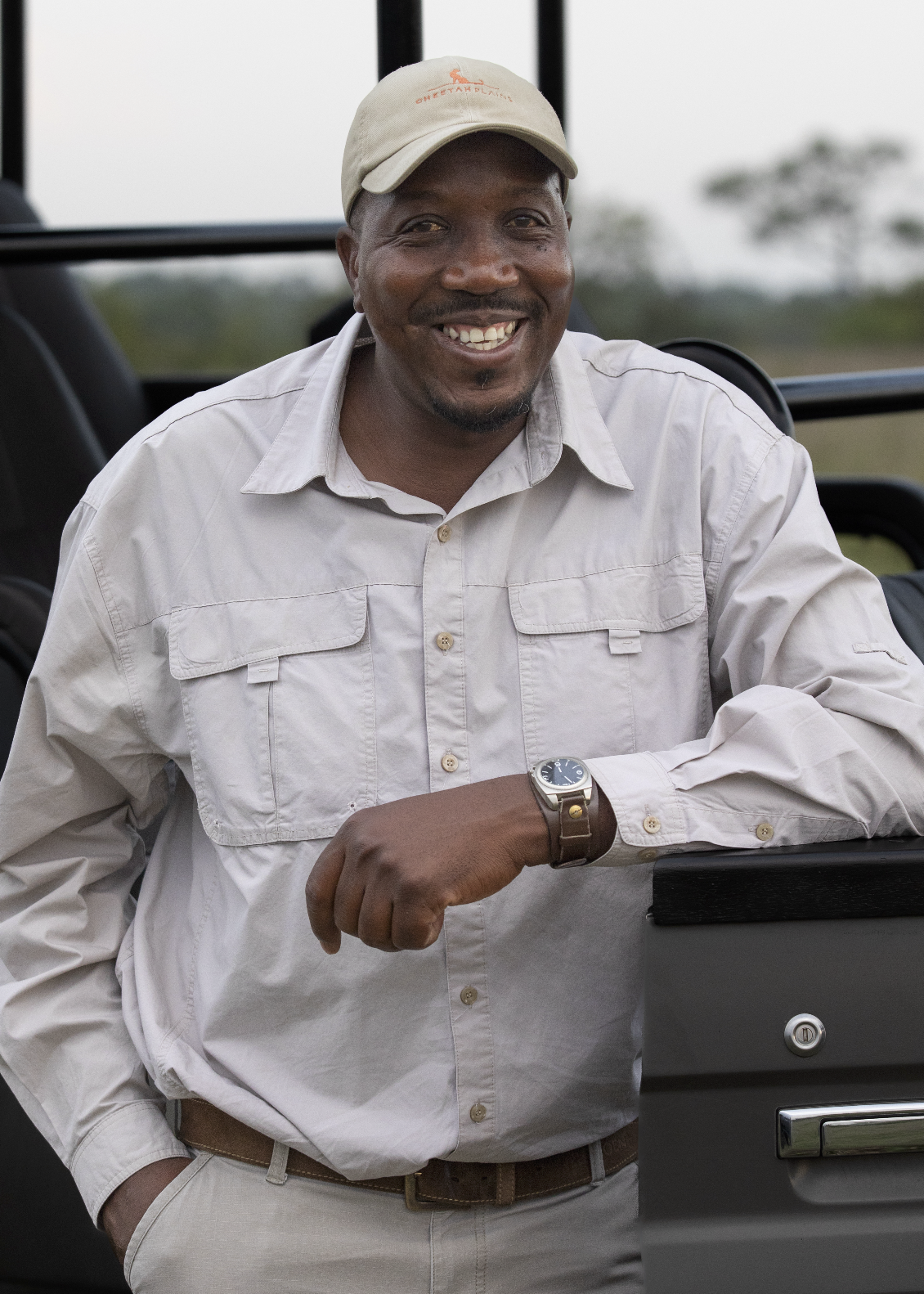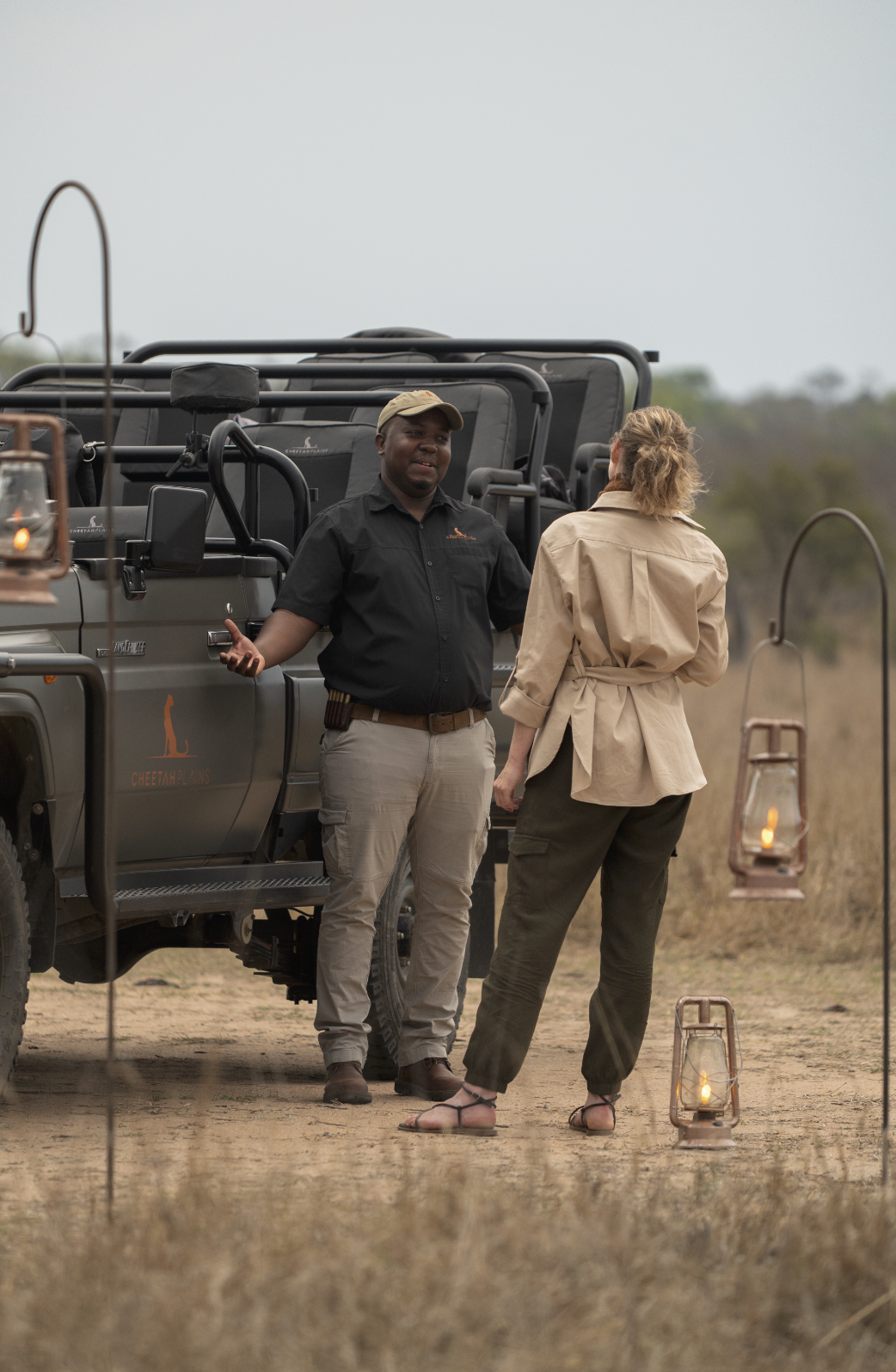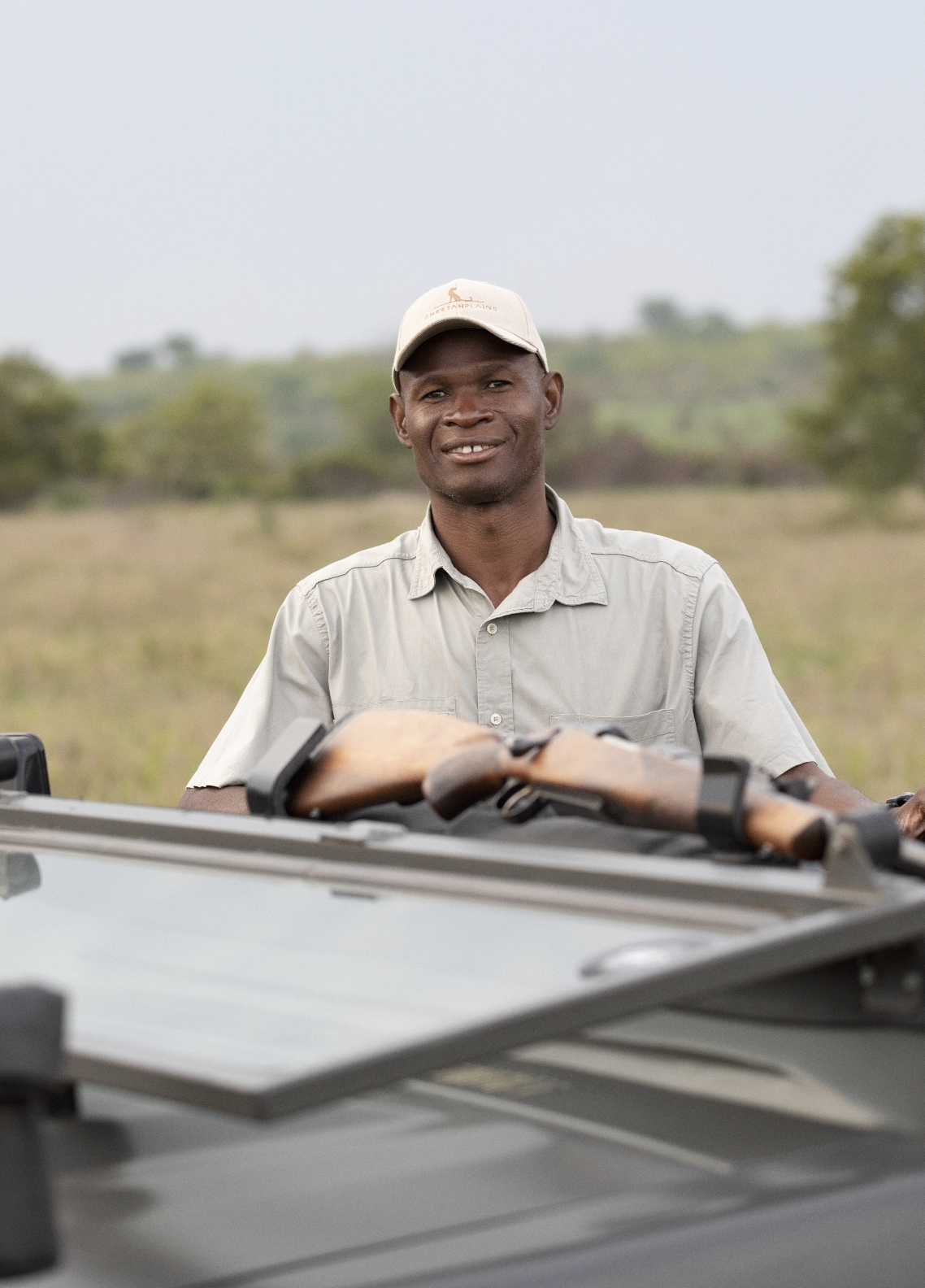Even for adults, it’s effortless to see safari guides as bush-based superheroes — before they’ve brought you within a metre of the continent’s most prized mammals.
That beautiful “what-to-to-doo” bird call you hear on your morning safari? Oh, that belongs to an orange-breasted bushshrike, known for its striking grey and yellow colours, they’ll likely tell you without missing a beat, often while juggling a conversation on the two-way radio, communicating with an eagle-eyed tracker up front, and navigating the network of gravel Sabi Sand roads.
Never mind that the birdcall comes from one of roughly 500 others flitting around the reserve.
It doesn’t end there, though. That aromatic scent? It’s wild sage, your guide may say, while slowing the vehicle to pick a leaf for you to smell or buttered popcorn… the smell of a leopard marking its territory. That mottled, almost camouflaged tree? It’s the unusual Tamboti, toxic to humans and never used for firewood.
From the gestation period of the impala… to the number of muscles in a giraffe’s neck, and often even questions about what exactly that leopard might be thinking as it eyes an impala across the riverbed—few questions seem impossible for this crew of encyclopaedic guides. And when you encounter that prized predator, it’s seldom by chance — it’s likely the result of guide and tracker teamwork after quietly spotting fresh paw prints minutes before.
Within minutes of arrival, often as your guide greets you fresh off the plane, you’ll realise that they are core elements of the safari experience — and that it’s not all about spotting the wildlife.
Decades of experience
Unlike rangers, who are now focused on the equally important aspects of wildlife conservation and management and invariably anti-poaching protection , guides are trained as guest-interfacing personnel. They’re responsible for your safety and enjoyment whenever you hop onto the Land Cruiser — and care for your needs even when you’re not bumbling around the bush.
To reach this level of responsibility as a qualified guide takes a lot of work — and, often, it’s a life calling.
Many of the country’s best guides start young — by learning to track livestock and live among wildlife in villages neighbouring South Africa’s reserves. Most take this innate knowledge of the wild to jobs at lodges close to where they grew up, where they work their way up through the ranks to become the most important human component of the safari experience.
But even then, official training through organisations like the Field Guides Association of South Africa takes years of hard work, academic studying, and practical training — more so if the guide specialises in other realms, like being equipped to assist with or lead walking trails.
It’s a lifelong commitment and one worth talking about with the guides at Cheetah Plains.

Sipps Maswangani, our head guide, was the first to host guests at Cheetah Plains. His knowledge about the region is matched by his passion for it, and he’s now been guiding visitors to South African reserves for over two decades.
Similarly, senior guide Andrew Khosa has over 25 years of experience in the wild — he worked his way up from groundskeeper to tracker to eventually achieve guide status. With a quarter of a century transitioning through different roles, Andrew has learnt to understand and appreciate the ins and outs of the wild from multiple perspectives.
For over 12 years, Civilized Ngwenya has guided guests through South Africa’s wilderness, earning recognition as an expert storyteller. In 2021, he won the FGASA Safari Guide of the Year award for his captivating tale of the Hippopotamus and the Scrub Hare. Civ’s deep knowledge, passion, and love for wildlife, especially elephants, enrich every guest experience at Cheetah Plains.
Sabelo Khoza has been with Cheetah Plains for five years, progressing from tracker to Junior Guide in 2022. Growing up as a village shepherd, he developed a natural talent for tracking, relying on instinct to find wildlife. Sabelo’s love for the bush and warm hospitality make him a valued member of the team.



More than wildlife
Becoming a guide isn’t easy, nor is working as one full-time. But despite the years of hard work, qualifying as a guide isn’t an end destination — as guest interests evolve, so does guides’ expertise.
Many have added experience and knowledge around star gazing, ecology, or conservation. Some may have specialised in photography and will quietly shift the vehicle to give you the best lighting and angles to help you get the shot.
Central to many safari experiences is a pause mid-drive for a bush coffee or sunset drink, which also falls under the domain of trackers and guides — the team will brew delicious coffees, mix the ultimate gin and tonics, and present a range of light snacks, as you reflect on the experience together.
As guides, we balance habitat management—like road clearing and alien species removal—with offering unforgettable guest experiences, from wildlife monitoring and immersive game drives to bug walks, treasure hunts, star-gazing with laser pointers, and even seasonal scorpion hunts and frogging.”
– Sipps
More than the game drives
The guide’s focus isn’t solely on the safari drive experience.
Wonder how that crisp bottle of sauvignon blanc you waxed lyrical about on your first evening’s sundowners ended up in your villa minibar? Or how it is that your drive strategically focuses on your core interests — or has a balanced mix for a more diverse group?
Guides are always listening and observing with the sole aim of improving your experience at Cheetah Plains. And even if you don’t expressly mention preferences or interests, chances are they’ve internalised your conversations, read your body language, and quietly informed other team members about these to enhance your time with us.
The core of the safari
The life of a guide at a lodge like Cheetah Plains is complex. It is a constant juggle between unpredictable wildlife, changing guest preferences, and ensuring that the experience inside and outside the lodge is the best it can be.
Still, most guides consider it a privilege to call a place like the Sabi Sand Nature Reserve their office and share this with interested and engaged guests.
The experience is also authentic, which is why at the end of your trip (which, incidentally, will see you arrive at the airstrip at precisely the right time, thanks to your guide), you’ll leave feeling not like a visitor, but as a friend.








